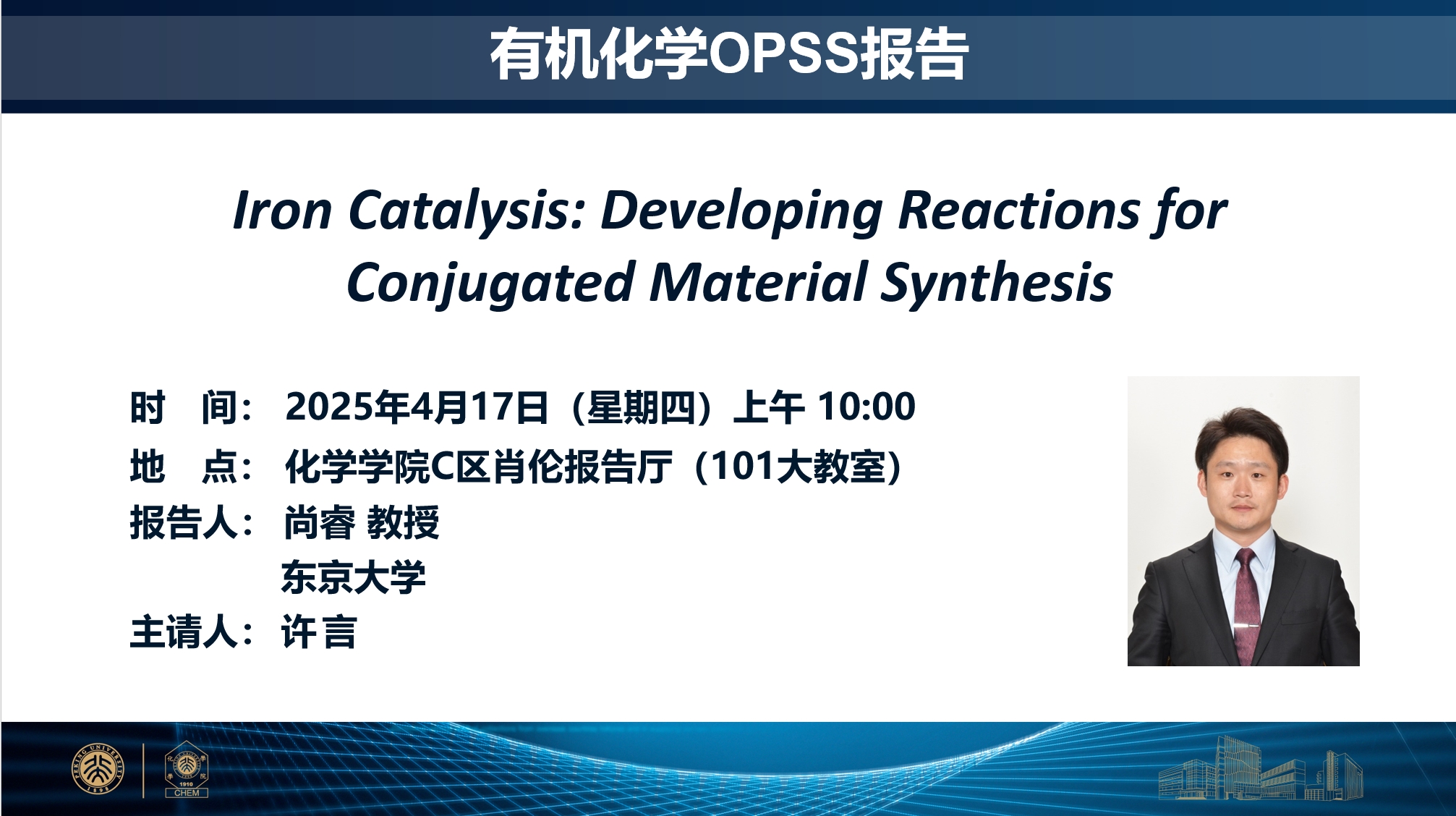
Abstract
As the most abundant metal on the Earth with negligible biological toxicity, iron is ideal as a sustainable catalytic resource for producing organic functional materials. Through years of research on iron catalysis and conjugated materials, we have come to understand various unique properties of organic iron compounds, especially their low oxidation-reduction potentials in catalyst turnover and the mechanism of C-H bond cleavage. The speaker acknowledges that these characteristics give iron catalysis an advantage in synthesizing highly conjugated molecules, especially those with higher HOMO energy levels than conventional molecules, that are difficult to obtain. We have successfully designed several iron-catalyzed reactions that facilitate the efficient synthesis of various conjugated polymers and small polycyclic conjugated molecules. Some new molecules created through our iron catalysis have exhibited excellent performance in solar cells, photodetectors, and light-emitting, highlighting the potential of this ultra-low-cost metal to revolutionize the organic electronics industry.
Biography
Rui Shang works at the Department of Chemistry of The University of Tokyo. He received his B.Sc. and Ph.D. (2014) from the University of Science and Technology of China (USTC) and had a joint-training Ph.D. at The University of Tokyo (2012–2014) with Prof. Eiichi Nakamura. Then he served as a JSPS postdoctoral fellowship there. In 2017, he was promoted to lecturer at The University of Tokyo, as an associate professor in 2020, and to project professor in 2024. Shang’s research interests cover catalytic reactions (base metal catalysis and photocatalysis), conjugated molecules, and their material functions. He was selected as an ECAB member for the Science of Synthesis and a JSP fellow of the Bürgenstock Conference in 2022. Dr. Shang recently received several accolades including the Young Chemist Award of the Chemical Society of Japan (進歩賞 2022), the Chemist Award BCA 2022 from MSD Japan, the Thieme Chemistry Journals Award 2023, and the ACS Catalysis Lectureship Award 2025.